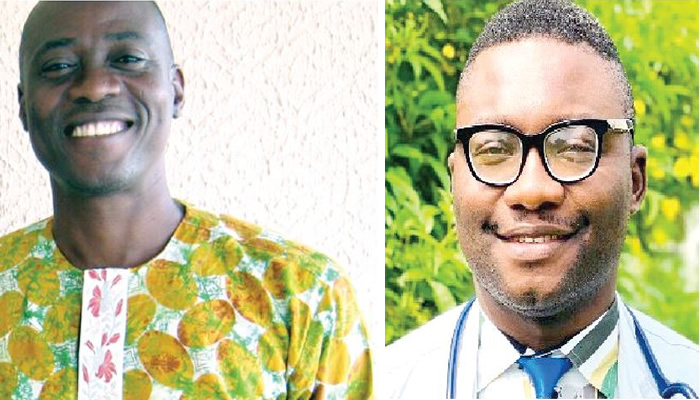
Specialists in evaluating and treating conditions that may require surgery or physically changing the human body say alcohol intake and smoking among other risk behaviours before a surgery may affect the outcome of the surgical procedure and post-surgery recovery.
The specialists, who spoke with PUNCH Healthwise at different interview sessions, said that emotional and physical planning ahead of surgery ensures a successful procedure and smooth recovery, advocating pre-surgery fasting.
They said that surgeries can be done to diagnose or treat a disease or an injury, saying that patients’ adherence to pre-surgery ‘dos-and-donts’ will ensure faster healing, recovery and smooth procedure.
A Consultant Surgeon at the Iyi-Enu Teaching Hospital, Ogidi, Anambra State, Dr. Princewill Okwunta, said that emotional and physical planning ahead of surgery can help to ensure a successful procedure and quick recuperation.
He noted that pre-surgery smoking will increase the patient’s risk of respiratory and anesthesia complications after the operation, insisting that drinking of alcohol can also greatly increase a patient’s anxiety and affect the result of the surgery.
He maintained that eating certain food and taking alcoholic food and drinks a day before, or less than a day before a surgery has its consequences on the surgery’s outcome and post-surgery recovery, saying that such is not allowed.
“For some classes of surgeries, coffee, gum, or mints and alcoholic beverages are not allowed. If a patient takes any of these before surgery, it may be necessary for the surgeon to cancel the procedure for another day, especially when the consequences of such are high,” he added.
According to the American Society of Anesthesiologists, “If you are planning to undergo a surgery, you would like to spend some time preparing, taking care of your health, learning as much as you can about the procedure and getting to know the people who will be taking care of you.
“You need to spend time before the procedure being as active as you can, eating right and getting good sleep. If you smoke, stop as soon as possible even if it’s just a day or two before surgery because smoking can cause problems with breathing and recovery from anesthesia and surgery.
“Other steps you take will be guided by your meetings with the medical team, including the anesthesiologist. Be sure your anesthesia care is led by an anesthesiologist. An anesthesiologist is a medical doctor who specialises in anesthesia, pain management, and critical care medicine. He works with your surgeon and other physicians to develop and administer your anesthesia care plan.”
On the need for the anesthesiologist, the American Society of Anesthesiologists added, “With 12 to 14 years of education and 12,000 to 16,000 hours of clinical training, these highly trained medical experts play a key role in your care. They meet with you before surgery, closely monitor your anesthesia and vital functions during the procedure, and take care of you after to assure that your recovery is smooth and your pain controlled.”
Also speaking, Professor Bolanle Ogungbamila of the Adekunle Ajasin University, Akungba Akoko, Ondo State, said those instructions are ways of reducing pre-surgery anxiety that could impact the outcome of the surgery.
Professor Ogungbamila, who is also the former Director of Academic Planning, Adekunle Ajasin University said, “Basically, smoking and alcohol intake before a surgery will lead to complications and increase heart beat. This will impact the outcome of the surgery.”
According to the World Health Organisation, surgical care has been an essential component of health care worldwide for over a century; and as the incidences of traumatic injuries, cancers and cardiovascular disease continue to rise, the impact of surgical intervention on public health systems will continue to grow.
The WHO noted that surgery is often the only therapy that can alleviate disabilities and reduce the risk of death from common conditions, saying that every year, many millions of people undergo surgical treatment, and surgical interventions account for an estimated 13% of the world’s total disability-adjusted life years.
The global health body said, “While surgical procedures are intended to save lives, unsafe surgical care can cause substantial harm. Given the ubiquity of surgery, this has significant implications: WHO has undertaken a number of global and regional initiatives to address surgical safety.
“Much of this work has stemmed from the WHO Second Global Patient Safety Challenge, ‘Safe Surgery Saves Lives.’ Safe Surgery Saves Lives set about to improve the safety of surgical care around the world by defining a core set of safety standards that could be applied in all WHO Member States.
“To this end, working groups of international experts were convened to review the literature and the experiences of clinicians around the world. They reached consensus on four areas in which dramatic improvements could be made in the safety of surgical care: surgical site infection prevention, safe anaesthesia, safe surgical teams and measurement of surgical services.”
On who can perform surgeries, Professor Ogungbamila, added, “General practitioners and family physicians can perform surgeries but it depends on the complications that they are treating. Whereby his level of competence is lower than the case he wants to carry out, he will refer to a specialist.”
Also, a family physician at the Anambra State Ministry of Health, Dr. Chidumeje Okafor, said family physicians, who are also known as general practitioners in the United Kingdom can perform.
He said, “A medical officer, who is skilled in surgery, who is not a surgeon, who is not a family physician, can still perform a surgery. However, their limits in surgery are specialist surgeries that typically involve special systems. Like a GP is not allowed to perform a craniotomy without supervision of a neurosurgeon.
“Even if he performs it, there has to be a neurosurgeon that will supervise him and it is the name of the neurosurgeon that will be in that operation note while the general practitioner who performs the surgery will now be an assistant.
“Also, a general practitioner can perform Cesarean Section, but when it results in things like removal of the uterus, hysterectomy, this is now an extreme case and has to be done by an obstetrician. Even if a general practitioner wants to do it, it has to be under strict supervision of such a person.
“A general practitioner can perform a number of surgeries but when it becomes purely a systemic surgery, then, a general practitioner is limited to the surgeries that are called basic surgeries.”




